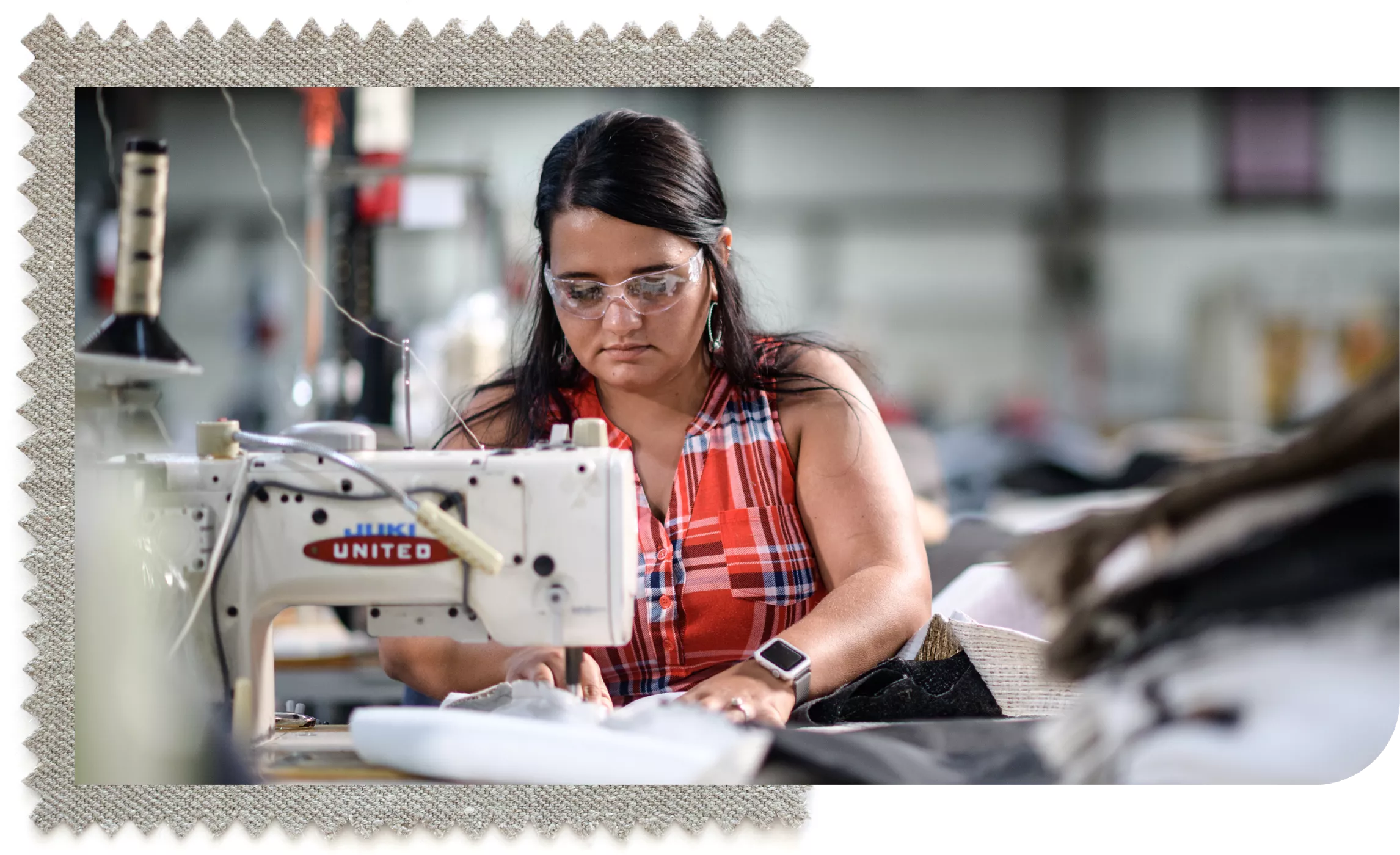
?fmt=webp-alpha&metadata=none)
La-Z-Boy Incorporated partnered with Slalom and AWS to map decades of mainframe dependencies, de-risk modernization with AI-assisted analysis, and execute a clear path to full decommission—freeing teams to focus on growth.

Impact
The retail and manufacturing leader will reduce annual run costs by more than $1M by shutting off the mainframe, while strengthening resilience and innovation agility.
Industry
Retail
Key Services
KEY TECHNOLOGIES/PLATFORMS
- Amazon Web Services (AWS)
The Vision
As La-Z-Boy Incorporated approaches its centennial, the brand that defined comfort is investing in its journey toward modernization.
For nearly 30 years, La-Z-Boy Incorporated—the vertically integrated furniture retailer and manufacturer known for its founders’ invention of the iconic recliner in 1927—relied on a mainframe computing system for a handful of critical processes. It was stable, but the legacy tech stack required the company’s IT team to keep two retirees on contract for occasional support. And the hosting was costly.
When CIO Carol Lee joined La-Z-Boy, she found an IT team that had been chipping away at the legacy platform for years. One major program was set to be replaced as part of a warranty system modernization, but remaining workloads were complex, opaque, and risky to touch.
Lee and her team began discussing the mainframe retirement challenge with Slalom while partnering on another project. Then, AWS funded a workshop where Slalom introduced our co-created mainframe modernization methodology and asked detailed questions to explore how it might work for La-Z-Boy.
“In the past, I’ve worked with a lot of partners that come in and say, ‘Yeah, we can absolutely do this and we’re totally confident,‘” says Lee. “Slalom brought a lot of knowledge and a strong AWS partnership, but the team also understood our skepticism.”
“Mainframe modernization projects are never easy,” says Walt Austin, a Slalom managing director. “There’s no room for arrogance, or you’ll get humbled very quickly.” Trust and confidence grew as La-Z-Boy and Slalom began to unpack the complexity together.
Around the same time, Lee negotiated a new mainframe hosting contract. “The sales guy didn’t think we could get out that fast,” she recalls. “I took it as a personal challenge.”
With additional AWS funding to offset the investment, Slalom and La-Z-Boy kicked off a full assessment.
The Solution
From ambiguity to momentum: we used AI to decode legacy logic, mobilized a phased plan, and modernized priority jobs with rigorous, penny-accurate reconciliation.
Assess phase: Mapping and prioritizing
“Having Slalom come in with fresh eyes, fully focused on the mainframe, was a really good first step,” says Lee.
To thoroughly understand the legacy system and validate a modernization approach, Slalom went deep on the details with La-Z-Boy’s team. We mapped the code base—a labyrinth of COBOL and other venerable programming languages—using a deterministic AI product from AWS called Blu Insights, a precursor of AWS Transform. We also used an early generative AI product, Amazon Q Developer, to understand the intent of some of the code.
Mark Carrier, La-Z-Boy’s director of delivery operations, describes how the remaining skeptics on his team became believers in the project after Slalom’s Alex Hatcher presented a Miro board that visually detailed everything on the mainframe and how it was connected. “It was like, ‘Oh yeah, we can trust these people.’”
Within six weeks, Slalom had catalogued and prioritized three complex workloads that had no like-for-like replacement and touched multiple processes—an electronic data interchange (EDI), an inventory costing process that the company relied on for end-of-year reconciliation, and a set of relational database loads. That led to scoping and soon we were full steam ahead on the first modernization target, the relatively straightforward EDI.

Mobilize phase: Plan the work, work the plan
In the mobilize phase, our Slalom team focused on designing a future state cloud-native architecture and planning a wave-based migration strategy.
Through it all, we continued to partner closely with the La-Z-Boy team to make sure the work would leave them in a better place. We paired with existing ways of working—building the backlog in La-Z-Boy’s Jira/Confluence and extending the way they were using Control-M for observability, so new cloud runs would feel familiar to the operations team. On delivery mechanics, we adopted La-Z-Boy’s deployment patterns and offered specific improvements.
“We were proving it out every step of the way,” says Carrier. “We could show that what we thought was going to work was working. By the end of the mobilize phase, we even had some things that were close to ready for production.”

Modernize phase: Delivering value
As we began the iterative modernization process, the priority was simple: move workloads off the mainframe and into the AWS cloud. But we were often able to deliver more than “lift and shift.”
“We started to refactor some of the jobs,” says Gavin Main, a senior principal at Slalom. “One job took 20 hours to run on the mainframe, and now we have it running in four minutes. We did that by identifying and pruning sources that were no longer applicable.”
Confirming technical parity for the inventory costing process migration was the most nuanced piece of the project. The mainframe can retire when the team can fully validate that whatever is processing on the mainframe today on a nightly, weekly, and monthly schedule is being processed identically—every line, every penny—in the AWS environment. “We’re nearly there,” says Carrier.
“That true mirroring capability was something no client had ever asked for,” says Lee. “Slalom wasn’t sure it would be possible, but they figured it out. The openness to work with us and deliver what we need has been awesome.“
Together, La-Z-Boy and Slalom proved that modernization can be fast, precise, and respectful of what came before—capturing the spirit of what we call Zero Legacy: a future where legacy systems no longer hold progress back.
Customer Impact
Long before 2027, when La-Z-Boy Incorporated celebrates 100 years in business, the company will take a clear step into the future by fully retiring its mainframe.
Retiring the mainframe will free the company to focus on its true legacy.
“Building for the long term is part of the culture at La-Z-Boy,” says Mark Holt, who leads the La-Z-Boy account for Slalom. “It’s a brand that moves deliberately, with purpose, to build durable relationships and durable products.”
In the AWS cloud, La-Z-Boy will move more efficiently to keep its commitments to customers and deliver exceptional experiences that stand the test of time. “We have a lot more flexibility being in a modern architecture,” says Carrier. “I feel really good about where we’re at.”
“We will definitely be celebrating this milestone,” says Lee.
Is it time to modernize your outdated systems?
Our Slalom team
Partnering on La-Z-Boy‘s mainframe modernization for more than two years, Slalom delivered proven expertise. Meet some of the team members:









